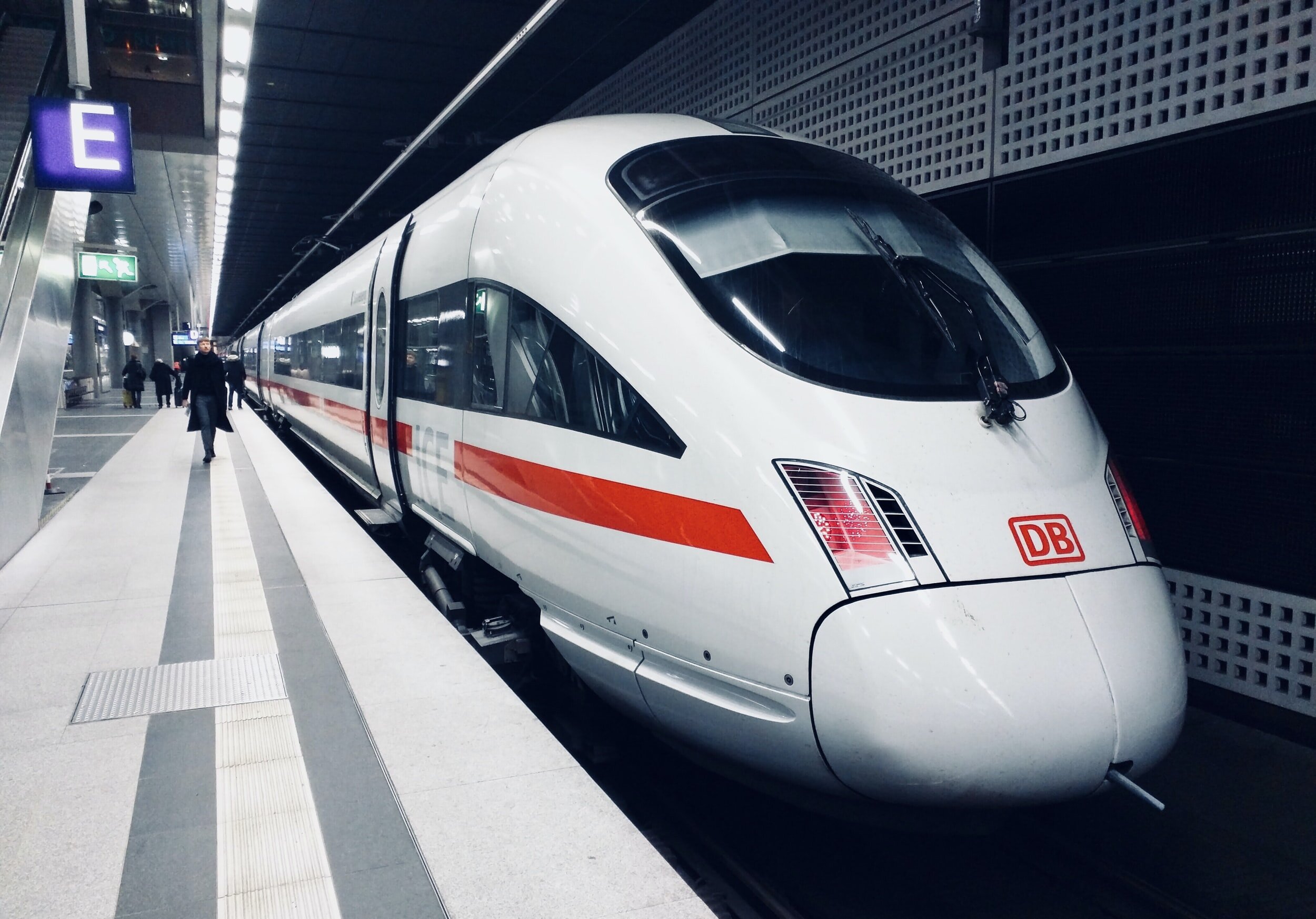Environment
Stress-free travel and opportunity to enjoy your environment
Overland train travel
If you book train travel to come to your course then I will offer a 5% discount on your guiding fee. To be eligible, your journey will need to be 80% on a train, allowing 20% use of taxi’s, buses or cars to get too and from your station. To benefit from this discount, once you have booked your travel and shown proof of your tickets, I will then refund you the savings.
One of my regular clients Chris has benefitted from travelling by train and below is his experience and advice.
Getting to Chamonix without flying
Taking the train to Chamonix is not much slower than flying, is cost effective and a lot more fun than flying. Compare a bottle of wine and a picnic on a French train to a cramped plane and transfer. Plus with the forests burning, glaciers disappearing and alpine routes falling down as the permafrost melts, it’s good time to reduce our carbon footprint.
Ferry and car options are worth looking at too, see below. The underlined texts below are web links you can click on for more information.
How to do it
The Passenger in Seat 61 is a great site for information and inspiration. To be honest, for this journey you just need to book the Eurostar to Paris then a train to Chamonix on the Rail Europe website. There are loads of options but a good one is an afternoon Eurostar to Paris Gare du Nord, overnight in Paris, and a morning train to Chamonix from Paris Gare du Lyon arriving early afternoon . You can also do the trip in a long day with a morning Eurostar and afternoon French train.
You can book the Eurostar up to 12 months in advance, with quite a lot of flexibility. For a hotel in Paris, you can for example use booking.com, and search on hotels near Gare du Lyon. Hotels in Paris are usually cheaper than in the UK.
You can book the French train 3 months in advance but there a lot of options, so you will definitely get a ticket. If you register on the Rail Europe website then try to book your ticket earlier than 3 months ahead, you can request an email alert for when the tickets are available. If you book early you’ll also often find you can upgrade to 1st class for under 10 euros each way. I tend to book the Eurostar and Paris hotel as soon as I know my dates, then book the French train once available.
Getting across Paris is easy – the Green metro (RER) goes from Gare du Nord to Gare du Lyon and costs Euro 1.90. There are loads of ticket machines at Gare du Nord taking debit cards, just go past the one nearest the Eurostar with the long queue of Brits. There is a Paris Metro app for guidance on Android and Apple as well.
The easiest French train route is the direct train to Le Fayet - St Gervais, then hop across the platform for the mountain railway to Chamonix. There is a nice café opposite St Gervais station if you have to wait. Don’t be put off if you have to change at a station called Bellegarde, it’s very straightforward.
To come back you can take 2 days, but you can also get an early train to Paris, get across to Gare du Nord for the Eurostar and have a leisurely lunch or leave your bags in left luggage and explore, then get an afternoon Eurostar home to do the whole trip in a day. Remember to allow enough time to check in for the Eurostar.
Other stuff
Cost – this will usually cost a little more, especially with a stay in Paris, but that’s part of your adventure. To compare to flying you should add the cost of getting to airport / parking, rip off food and transport at the other end.
Time – even though the actual flight might not take long, there is getting to the airport, security, hanging around, flying, hanging around, then a transfer, so for comparison the overall journey if flying is pretty time consuming – effectively a day.
Luggage – you can take more stuff on the train; 2 huge bags of up to 85 cm long on Eurostar, plus a 3rd bag, and no weight limit. You are not supposed to take ‘climbing equipment’ on the Eurostar but helmets, harnesses and carabiners all seem to go through fine. I suspect ice axes are a no no, and possibly crampons and hexes, but Guy has these. Eurostar allows walking poles.
Staying in London – if you are travelling from Scotland for example and have to stay in London for a night, there are also reasonable hotels in London if you don’t mind a trip on the underground to St Pancras. Camden Town can be a good bet, or Brick Lane. One cost saving option out of university term time is to stay in a student hall of residence, such as University of London or the LSE. This will mean you can do the rest of the journey in a day with lunch in Paris.
Ferry and drive – a journey by one person in car emits very roughly the same Co2 as 1 person flying, so if 4 people share a car you are helping. I’ve not done this but the best routes are possibly overnight ferry from Portsmouth to Le Havre which puts you straight on the French autoroute network after a night’s sleep, or via Eurotunnel to Calais.
Do you need a car in Chamonix? – obviously Guy provides transport, but any non-climbing members of your group can access the area by bus and train, much of it included in the lift pass price.
Does it make any real difference to climate change? – absolutely; aircraft emissions are particularly bad for the environment as they are discharged high in the atmosphere. Further, governments are more likely to bring in society wide measures like a frequent flyer tax, tougher emission control and taxing aviation fuel, if they see hard evidence of support by people flying less. The converse is also true. With the increase in demand for Eurostar, direct trains including sleepers to other European cities are being investigated. Finally, there is a social justice issue with flying - in England in 2018 10% of people took over half of all flights while 48% didn’t fly at all, but with people lower down the socio-economic scale less able to afford adaptions to climate change impacts such as extreme heat, flooding and increases in food prices. So all in all, you will be making a difference.
ECO Course
If you wish to participate in an ECO Course in the Alps then please get in touch. This is currently under construction but watch this space!
Feature 3
More to come.








